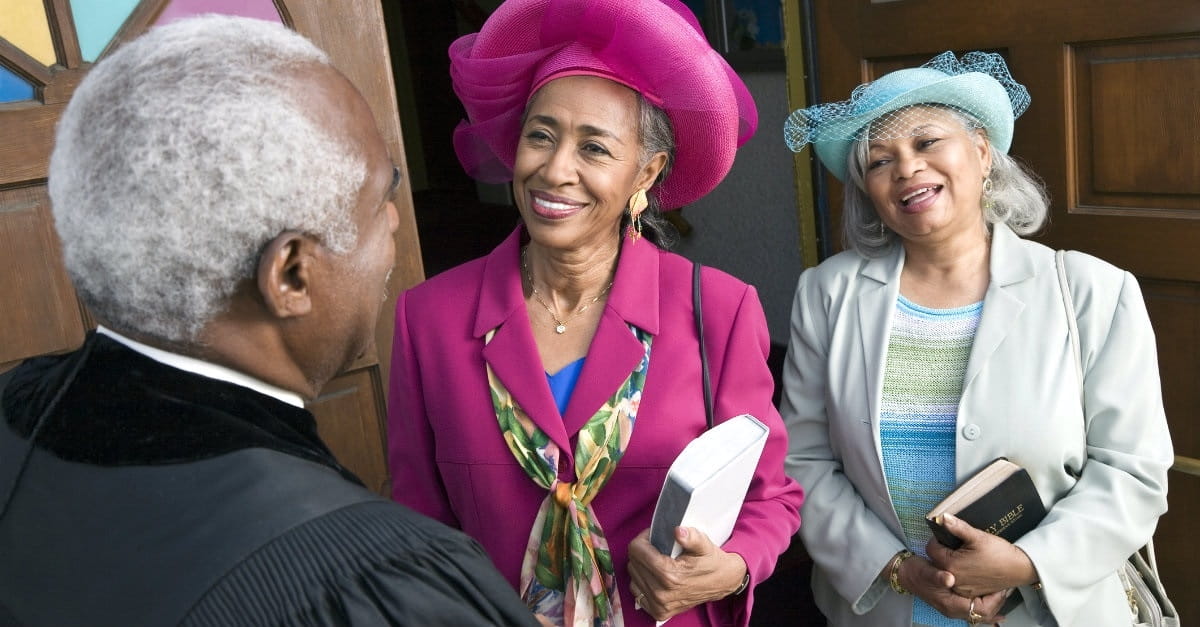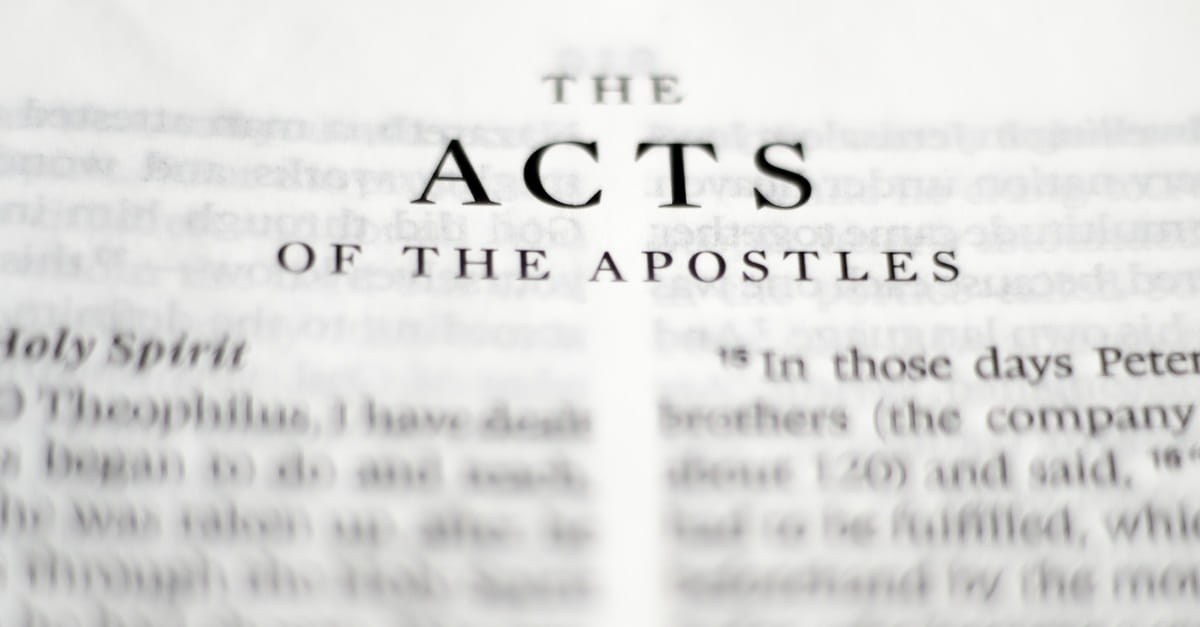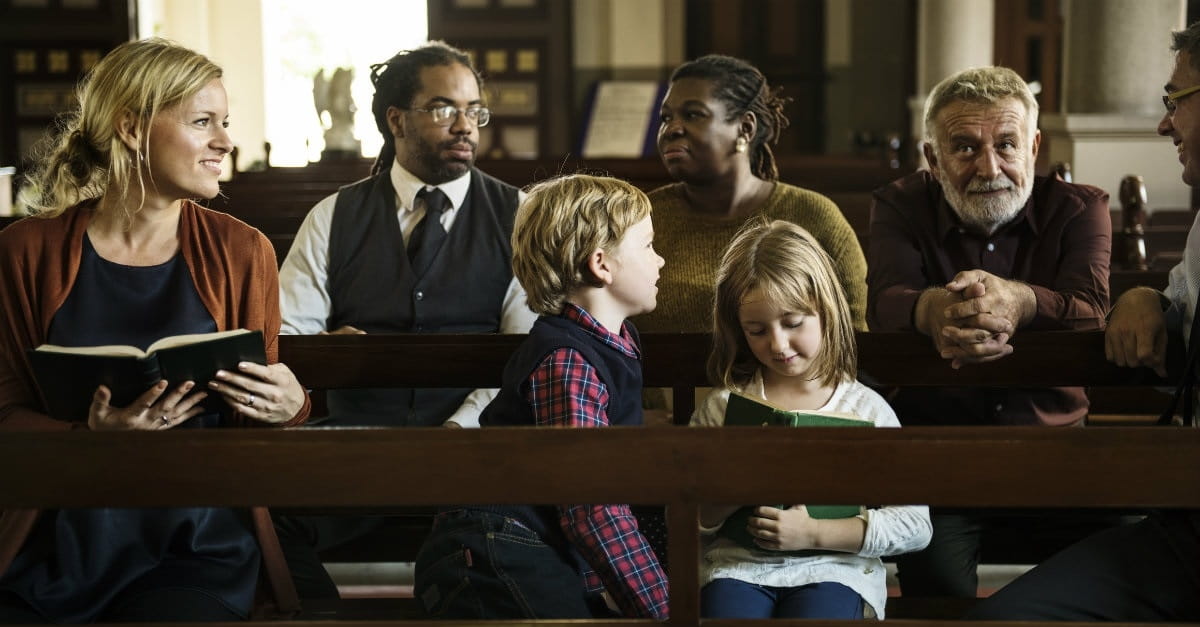
Membership in a local church is very much in the minds of Christians these days. Is it biblical? Is it necessary? Is it helpful? These and other questions lead to the following ten things you should know about what church membership means and entails. [In addition to my own research, I’ve drawn heavily on the writings of John Piper, Michael McKinley, Jim Elliff, Mark Dever, and Kevin DeYoung.]
Perhaps the best place to begin is by asking the question: What do you want from your local church? I assume, first of all, that you want a local church where you can be known and loved and cared for by other Christians. There is, after all, no such thing as an “anonymous-lone-ranger-Christian” in the NT. You can certainly remain anonymous if you want to. It’s easier to do in a church of several thousand where you can slip in on a Sunday morning and sit along the wall and never engage anyone in fellowship or conversation or accountability. So, yes, you can do that if you want. But why would you want to?
I also assume you want a local church where you can know others and experience the joy of pouring into their lives and loving and encouraging and helping them and ministering to their needs. In other words, you want a local church, I assume, where you can be useful and be a blessing to others who are struggling and need your input.
Finally, I assume you want a local church where you can be spiritually led and biblically fed and lovingly protected by gifted leaders. I assume you want leaders who not only know who you are but are joyfully committed to keeping watch over your souls, leaders who take seriously their responsibility to teach you the truth and help you grow in your knowledge of God and your intimacy with him.
Photo Courtesy: Thinkstock
1. Church membership is not a club
.1200w.tn.jpg)
Let’s begin by describing what I do not mean when I speak of covenant membership in the local church. Our aim is to avoid thinking of the local church in “religious” terms, such that “membership” is the card you carry that entitles you to show up when you please, consume only what you desire, and live however you wish on any day other than Sunday. The concept of “membership” has too often been associated with power, privilege, and an approach to the Christian life that grants a person all the “perks” of being thought of as a “believer” but with few or no responsibilities.
The last thing in the world that we envision when we think of covenant membership is the idea of a Christian congratulating himself/herself, and taking pride in membership in such a way that others are left feeling judged or excluded or second-rate. Covenant membership is not a badge that one flashes to make known their spiritual maturity. Our desire, on the other hand, is to call Christian men and women to a more genuine, authentic, heartfelt, and holistic relationship with other Christians that entails commitment and discipleship and provides us with a more effective means to display the glory of Christ.
The church is not a club we join in order to reap certain benefits at our leisure, whenever we please, but is rather a complex of relationships of mutual encouragement and spiritual accountability in which we partner with one another for the advance of the gospel in the earth.
Photo Courtesy: Thinkstock
2. "Covenant Membership" is intentional commitment to every other member

What, then, do we mean by the words “covenant membership” when it comes to the local church? To be a covenant member simply means that an individual is identified with, is accountable to, and is a contributing participant to this local expression of the body of Christ. With covenant membership there are certain commitments that are made, responsibilities that are embraced, and relationships that are acknowledged.
Covenant membership in a local church, therefore, is the way in which the individual is known to be intentionally committed to every other member of the congregation, and the congregation is known to be committed to the individual. Covenant membership means, “I now put myself under the care of the Elders and I invite them to hold me accountable as a constituent member of this body.”
Photo Courtesy: Thinkstock
3. The Bible doesn't actually mention formal church membership (HOWEVER...)

Does the New Testament explicitly mention or describe formal church membership? No, it does not. However, there are numerous truths and responsibilities in the NT which would be minimized or denied if there were no definable local church membership. The fact that membership is not explicitly mentioned does not mean it didn’t exist. Those things which are explicitly mentioned necessarily assume that covenant membership existed.
If we conclude that covenant membership is necessarily entailed by the Bible’s commands for the church and the description of its life, we are morally obligated to pursue it in our churches today. If we conclude that it is not, we are free to regard local church membership as a matter of prudence which we may disregard if we think it not to be helpful in fulfilling our calling as the body of Christ.
Photo Courtesy: Lightstock
4. The Bible requires Christians to be submitted to a group of church leaders (Thus, Church membership is implied.)
.1200w.tn.jpg)
Church membership is implied in the biblical requirement of Christians to be submitted to a group of church leaders, Elders, or Pastors.
The point here is that without covenant membership, who is it that the NT is referring to who must submit to a specific group of leaders? And who are those leaders? No one would argue that a believer is required to submit to the authority of just anyone who chooses to designate himself an Elder or Pastor. Some kind of expressed willingness or covenant or agreement or commitment (that is, membership) has to precede a person’s submission to a specified group of leaders who themselves are committed to providing spiritual direction to those who have acknowledged their authority. In this regard, see 1 Thessalonians 5:12-13; 1 Timothy 5:17; Hebrews 13:17;
Photo Courtesy: Thinkstock
5. Another way covenant membership is implied is through a charge to Elders
.1200w.tn.jpg)
Some basic concept of covenant membership is implied in the way the NT requires Elders to care for the flock in their charge. Of course Elders can extend their love to anyone and everyone, and should, within the limits of their ability. But the question is whether the Bible tells Elders that they are to have a special responsibility and care for a certain group, a group of members. Consider Acts 20:28 where Paul tells the Elders how to care for their flock: “Pay careful attention to yourselves and to all the flock, in which the Holy Spirit has made you overseers, to care for the church of God, which he obtained with his own blood” (Acts 20:28).
This verse does not say Elders cannot visit unbelievers or those who are not yet members. But it does make clear that their first responsibility is to a particular flock. How are they to know who their flock is? Who are the Elders and Pastors responsible for? For whom will they give an account to God? The way Peter speaks to the Elders in 1 Peter 5 is even clearer on this point: “Shepherd the flock of God that is among you, exercising oversight, not under compulsion, but willingly, as God would have you; not for shameful gain, but eagerly; not domineering over those in your charge, but being examples to the flock” (1 Peter 5:2-3).
“Those in your charge” (your portion, your lot) implies that the Elders knew those for whom they were responsible. This is just another way of talking about membership. If a person does not want to be held accountable by a group of Elders or be the special focus of the care of a group of Elders, they will resist the idea of membership. And they will resist God’s appointed way for them to live and be sustained in their faith.
Photo Courtesy: Thinkstock
6. Church membership is implied through the New Testament teaching of church discipline

Church membership is necessarily implied by the teaching in the NT on church discipline. In Matthew 18:15-17 Jesus declares:
“If your brother sins against you, go and tell him his fault, between you and him alone. If he listens to you, you have gained your brother. But if he does not listen, take one or two others along with you, that every charge may be established by the evidence of two or three witnesses. If he refuses to listen to them, tell it to the church. And if he refuses to listen even to the church, let him be to you as a Gentile and a tax collector” (Matt. 18:15-17).
If there is no church membership, how can you define the group that will take up this sensitive and weighty matter of exhorting the unrepentant person and finally rendering a judgment about his standing in the community? It’s hard to believe that just anyone who showed up claiming to be a Christian could be a part of that gathering. Surely, “the church” must be a definable group to handle such a weighty matter. You know who you mean when you “tell it to the church.”
Apart from certain criteria or qualifications that enable you to know who is the “church” and who isn’t, there is simply no way to obey this command. The final step in this process of discipline is treating the unrepentant person “as a Gentile and a tax collector.” Clearly, again, this makes sense only on the assumption that criteria exist by which one can know who or what constitutes the “church” from which this unrepentant person is now being excluded.
Photo Courtesy: Thinkstock
Consider Paul's language ("In the Church" v. "Outside the Church"):
.1200w.tn.jpg)
Or consider 1 Corinthians 5:12-13 – “What have I to do with judging outsiders? Is it not those inside the church whom you are to judge? God judges those outside. ‘Purge the evil person from among you’” (1 Cor. 5:12-13).
It is clear from Paul’s language that there is an “in the church” group and an “outside the church” group. Being in the church is definable. There are recognizable boundaries that make drawing this distinction possible. The objective criteria that constitute those boundaries would be the terms of membership in the church. It is also clear that a person can be removed from being “in the church.” Such a formal removal would not be possible if there were no such thing as a clear membership. In other words, Paul’s exhortation would be impossible to obey unless there were a way of determining who is an accountable part of a local body and who is not. Simply put, formal exclusion presupposes formal inclusion. Michael McKinley provides this helpful illustration:
“I cannot be removed from the Northern California Left Handed Golfer’s Association because I have never been a member of such an organization. Now according to their website, the NCLHGA will remove people from membership for several reasons (like right-handedness, perhaps?). But I am in no danger of being subject to such an action, because you can’t kick a person out who was never a member to begin with.”
The church’s discipline is to occur when "you are assembled" (1 Cor. 5:4). For our purposes, simply note that there was a definite and formal assembly of the church, and they knew who to expect when it gathered. The church would have to have known who constituted its membership.
Apart from some expression of formal membership, how would it be determined who has the right to speak and to vote in the passing of judgment on the offending party? Surely this right would not extend to just anyone. Otherwise the person being disciplined could bring in extended family members and friends or coworkers or even people off the street who said they believed in Jesus. What about the person who has attended services only at Christmas or Easter, or perhaps someone who hasn’t been present for several years but occasionally sends in a support check? The right to engage in the disciplinary process must be limited to a specific group, one that is limited by the criteria that constitute membership in the body.
Photo Courtesy: Thinkstock
Those Inside the Church
.1200w.tn.jpg)
The “discipline” of which Paul speaks was intended only for those who are in the church (v. 12). Evidently some in Corinth were avoiding contact with immoral unbelievers outside the church. Paul seeks to correct this misunderstanding by reminding them that the church’s judgment was aimed only at those “inside” the church. It seems clear that the church knew who was an insider and who was an outsider. Those “inside” the church must have been united to one another or committed in some special way beyond just casual acquaintance.
One author sums it up this way: “You can't fire someone who doesn't work for you. You can't vote in your country to remove a government official elected by another country. You can't appeal to a court to discipline someone who isn't within its jurisdiction. In the same way, you can't formally discipline someone who is in an informal relationship with you; you have no authority to do so. These people in Corinth had voluntarily committed themselves to a formal relationship and they knew who were official members of the church and who were ‘outside’.”
In 2 Corinthians 2:6, Paul refers to the discipline the church inflicted on an individual as the “punishment by the majority.” The existence of a “majority” only makes sense if there was a defined set of people from which the majority is constituted. There cannot be a majority of an unspecified group; it must be a majority of something. This brings us back to the point made earlier in conjunction with the disciplinary process in 1 Corinthians 5. Was it the majority of people who happened to be present the day the vote was cast? Could non-Christians then vote? Could any Christians who happened to be visiting from another city who didn’t know the situation vote? The most natural assumption to make is that Paul meant the majority of an acknowledged membership of the church.
Photo Courtesy: Thinkstock
7. It's likely certain criteria or standards were in place in the Early Church (to set apart believers authorized to join in decision-making)

In Acts 15:22 we read the following: “Then it seemed good to the apostles and the elders, with the whole church, to choose men from among them and send them to Antioch with Paul and Barnabas” (Acts 15:22).
A decision needed to be made concerning those who would be entrusted with a letter summing up the conclusions of the Jerusalem Council. The decision was made not only by the apostles and the elders but in conjunction with “the whole church.” Who constituted the “whole church”? How was it known that one either was or was not part of the “church” in Jerusalem? How was it determined who had a right to speak into this matter? Would anyone who happened to be present at the meeting be given a voice? I find it highly unlikely that any person, regardless of belief, behavior, or involvement in the life of the body could simply assert himself into this affair. It is difficult to escape the conclusion that certain criteria or standards were in place that served to set apart those believers who were authorized to join with the apostles and elders in making this decision.
Photo Courtesy: Thinkstock
8. Consider Paul's mention of "the household of faith"

Consider Paul’s exhortation in Galatians 6:10 – “So then, as we have opportunity, let us do good to everyone, and especially to those who are of the household of faith.”
As Christians, we are responsible to display the love of Christ to “everyone,” i.e., to all people regardless of their spiritual convictions. But we have a unique responsibility “to those who are of the household of faith.” The local church is here portrayed as a family, spiritual “brothers” and “sisters” whose presence in the house and identity as members of that family are obvious.
We don’t know what the criteria were that identified one as a family member and thus the object of this particular display of “good,” but there had to have been some means by which the household of faith was differentiated from “everyone” else. This is what is meant by “covenant membership” in the family of God’s children.
Photo Courtesy: Thinkstock
9. There were times in the New Testament "the whole church [came] together"
![9. There were times in the New Testament "the whole church [came] together"](https://media.swncdn.com/cms/CW/51067-familyatchurch.1200w.tn.jpg)
In 1 Corinthians 14:23, Paul describes a situation in which “the whole church comes together.” How would the leaders know if the “whole church” was there if no formal covenant relationship was established? The fact that Paul envisioned a group that could be identified and defined as everyone who belonged to that local body necessarily assumes that some means or mechanism had to be in place by which such people could be known. I think that means or mechanism or whatever other word you find appropriate is what I am calling “covenant membership.”
Photo Courtesy: Thinkstock
10. The Church is described as "Body", "Flock", and "Building"
.1200w.tn.jpg)
Covenant membership is implied in the metaphor of the “body” in 1 Corinthians 12:12-13. The original meaning of the word “member” is member of a body, like hand and foot and eye and ear. That’s the imagery behind the word “member” in the text (vv. 12, 14, 18, 19, 20, 23, 25, 26, 27). Verse 12: “Just as the body is one and has many members, and all the members of the body, though many, are one body, so it is with Christ.”
So the question this imagery raises for the local church that Paul is describing in 1 Corinthians 12is: Who intends to be treated as a hand or foot or eye or ear of this body? There is a unity and organic relationship implied in the imagery of the body. There is something unnatural about a Christian attaching himself to a body of believers and not being a member of the body. Neither Paul nor any other biblical author ever describes a Christian as one who functions or exists in isolation from the whole.
In addition to the metaphor of the “body” the New Testament speaks of the church as a “flock” (Acts 20:28) and a “building” (1 Peter 2:5). In each of these metaphors, there is an obvious relationship between the individual and the congregation as a whole. The individual Christian is a member of the body and a sheep in the flock. The individual believer is, in Peter’s words, "a living stone" in the spiritual house.
Each of these word pictures, so vital to our understanding of the church, demand more than a casual commitment from the individual. There are no informally connected stones in a building. They are cemented together unambiguously. Sheep do not hop from flock to flock; rather, the shepherd knows exactly how many sheep he has in his care. Body parts do not relate to each other informally; they are intricately connected to each other and are mutually dependent. Surely, we best reflect these metaphors when we formally tie ourselves to a local congregation.
Photo Courtesy: Thinkstock
Why Covenant Membership?

So, why covenant membership? It isn’t because we want to be like some other church, or even because we want to be unlike someone else. It is because we want to be biblical. It is because this world wants to sell you a bill of goods and to shape you in its image. The world wants to convince you that:
You should maintain your independence and autonomy.
Spiritual authority, or any kind of authority for that matter, is evil.
You should float around, but never settle down.
And if you don’t like what is being offered in your church, there are at least a dozen more down the road that will surely have what you’re looking for.
Why covenant membership? So that when your life starts to fall apart (however or whenever that may happen) you can rest assured that others who have pledged and promised themselves to you will be there, to love and support you, to pray for you, to instruct you, to walk with you through the worst of times.
Why covenant membership? So that in the face of rampant relativism and postmodern mush that says truth is whatever each individual wants it to be you can stand arm-in-arm with brothers and sisters in Christ and say: “This, the Word of God, is truth. We are united by covenant in our commitment to what it says. And we’re willing to go to the ends of the earth together to make it known, and if necessary to die for it."
This article originally appeared on SamStorms.com. Used with permission.
Photo Courtesy: Thinkstock